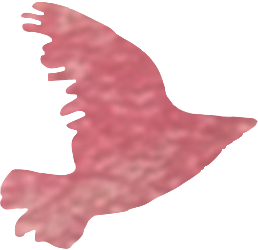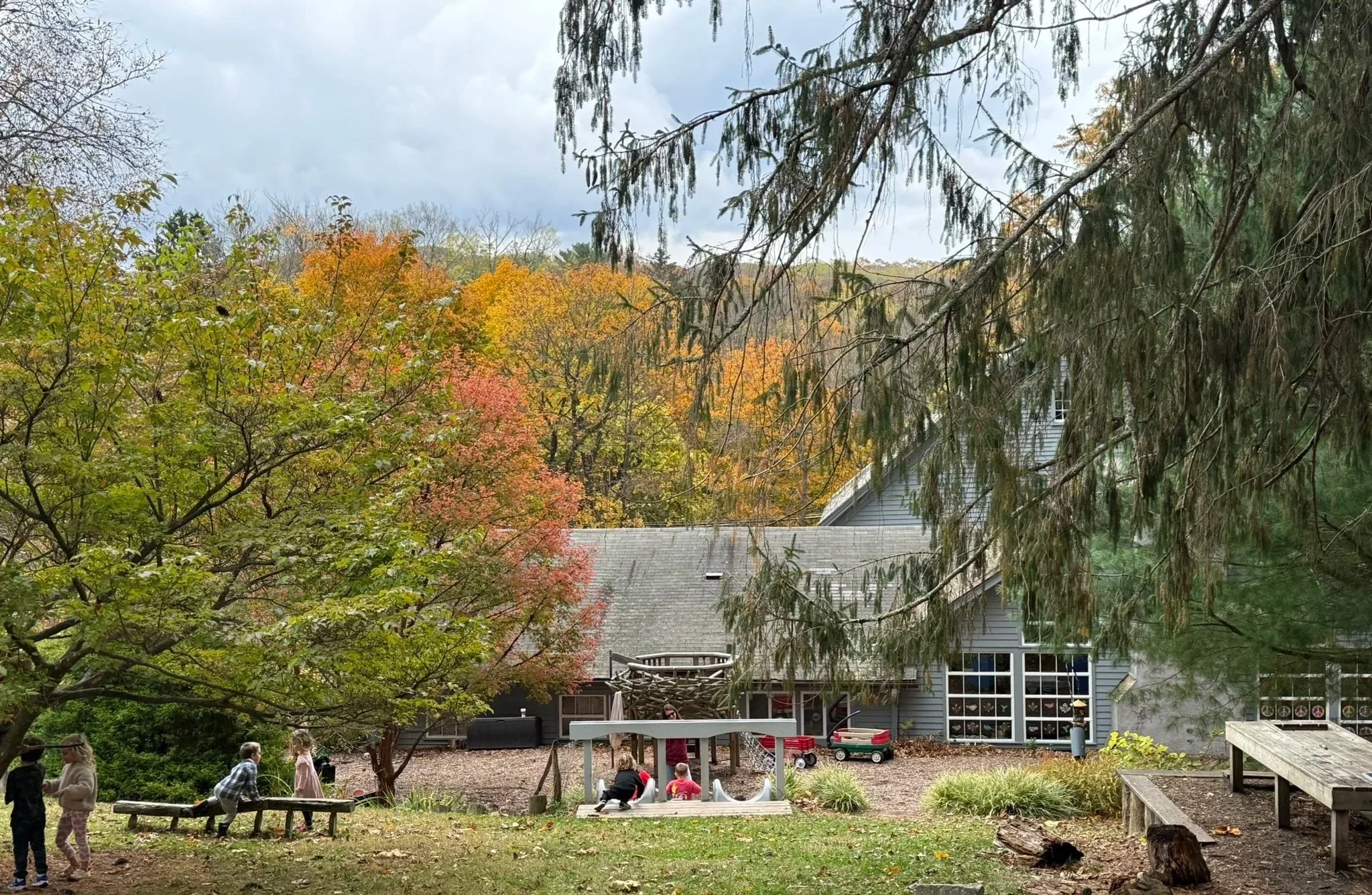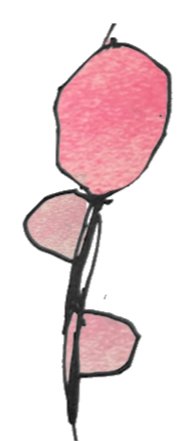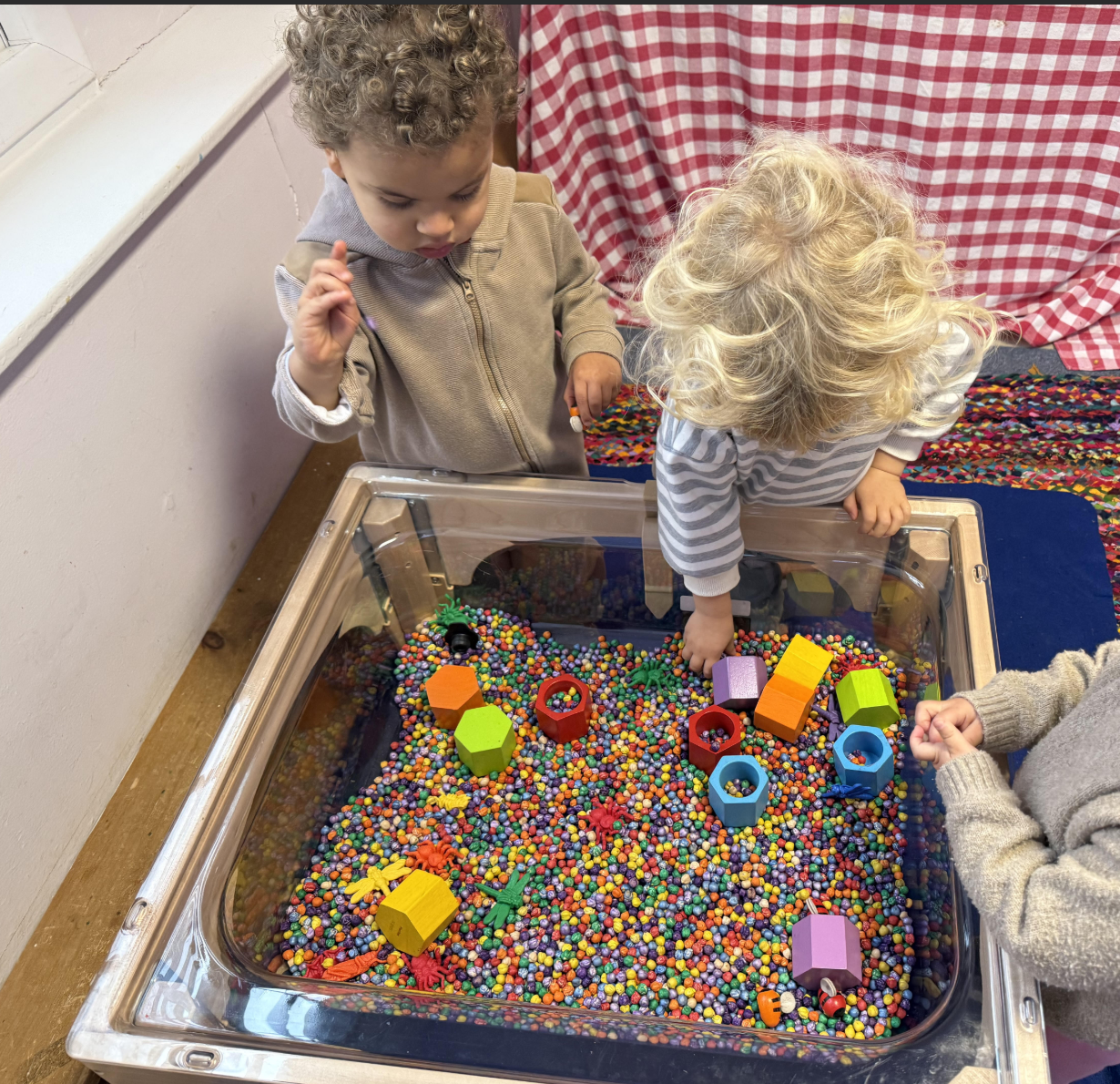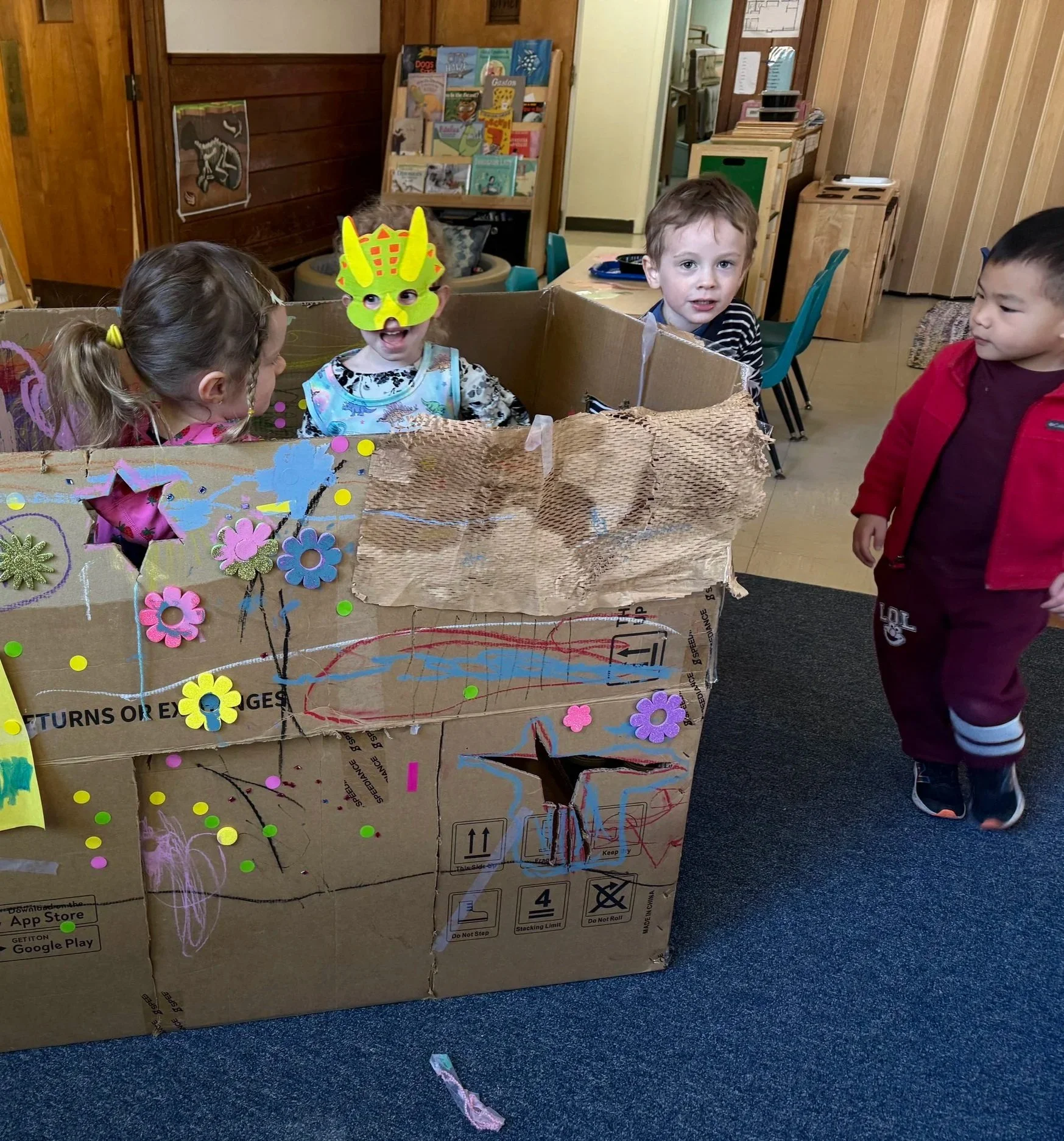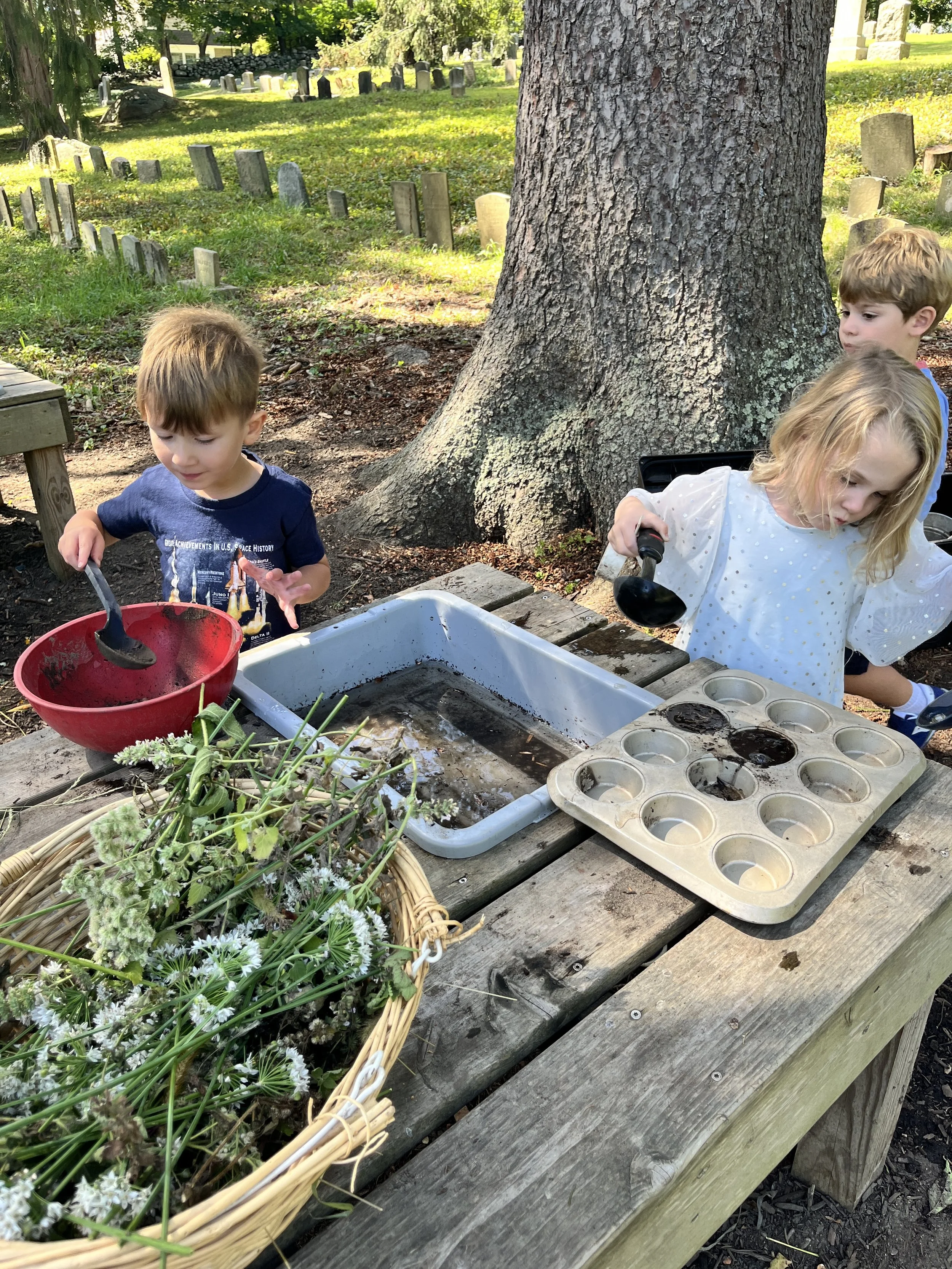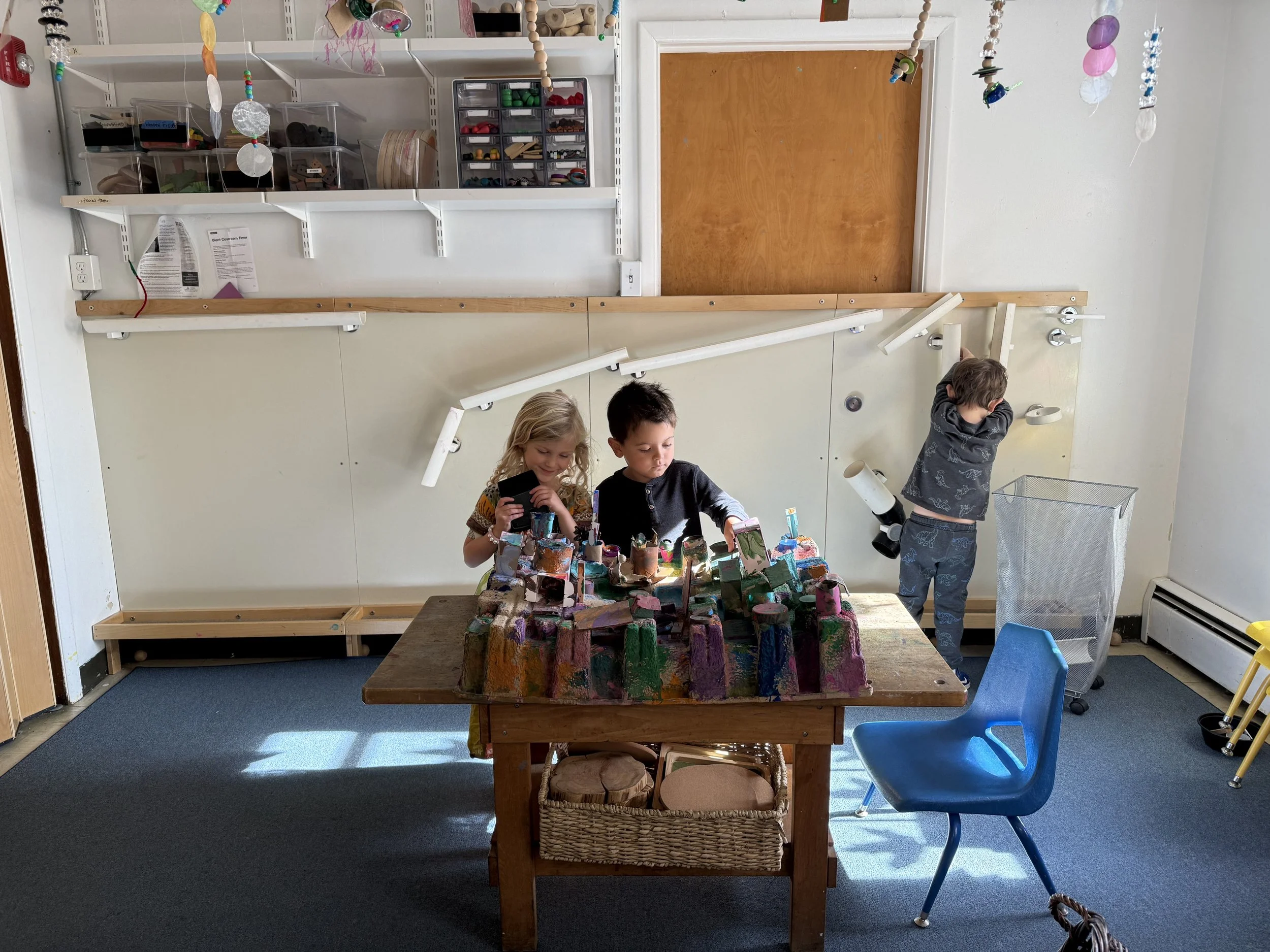
Learning Through Play, Art, Nature, and Connection
Our Program
At Chappaqua Friends Nursery School, learning unfolds through play, exploration, and friendship. Our program offers a progressive, child-centered approach to early education for children ages two to five.
Rooted in Quaker values, we view each child as capable, curious, and full of potential. Through hands-on discovery, creativity, and community connection, children build the foundations for lifelong learning and compassion.
Our Approach to Learning
Play-Based & Progressive
Inspired by the Reggio Emilia and progressive education approaches, we believe children learn best through play — by exploring, collaborating, and constructing their own understanding of the world. Our environment acts as a teacher, inviting discovery through blocks, sensory materials, and process-based art that nurture creativity, confidence, and joy in learning.
Natural Classroom
Outdoor exploration is an essential part of each day. Children spend much of their time outside — exploring our playground and woodland meadow. Beneath the trees and in our pollinator garden, they observe plants and creatures, developing empathy and care for the natural world.
Lifelong Learners
Through meaningful play, friendship, and exploration, children develop the skills and mindset for a lifetime of curiosity and compassion. They leave Friends with confidence in who they are, a love of learning, and a sense of responsibility to their community and the world around them.
Community & Belonging
Rooted in Quaker values, we nurture peace, respect, and a sense of belonging for all. We teach peaceful conflict resolution, read books that reflect diverse experiences, and celebrate all cultures and holidays — exploring these ideas through play and collaborative activities.
Nurturing Teachers
Our experienced educators are guides and collaborators who observe children closely and thoughtfully extend their ideas. They create a warm, secure environment where every child feels seen, heard, and valued — laying the foundation for confident, joyful learners.
Integrated Learning
Learning at Friends follows an emergent curriculum guided by children’s interests and questions. Math, literacy, art, science, and cooking are woven into hands-on experiences, giving each child multiple ways to explore, play, and connect ideas.
A Mindful, Integrated Curriculum
At Chappaqua Friends, learning is a joyful, integrated experience. Our curriculum weaves together language, art, science, math, nature, and movement to nurture curious, confident learners who express themselves fully and think deeply about the world around them.
-
Counting, sorting, building, and patterning emerge naturally through play with blocks, manipulatives and real world experiences in the kitchen.
-
Songs, rhythm, and creative movement foster joy and self-expression. We incorporate music and movement activities in our weekly morning circles, outside in the meadow, and during our weekly Spanish lessons.
Spanish lessons build a foundation for learning a new language while developing an understanding of different cultures.
-
Learning to be a good friend is at the core of everything we do. Each day, teachers model kindness and respect, read books on community and empathy, and guide children as they peaceful conflict resolution.
-
Literacy is at the heart of our program. In a literature-rich environment, children are surrounded by stories, songs, and conversations that spark imagination and foster a love of reading and writing.
Through storytelling, music, and dramatic play, they develop communication skills, creativity, and confidence in self-expression.
-
Art at Chappaqua Friends is exploratory, sensory, and personal. Each creation is unique—an expression of a child’s choices, emotions, and ideas. The process of thinking, feeling, and talking in the art area connects naturally to storytelling, science, and math, allowing children to make meaningful interdisciplinary connections.
-
.Our science program honors children’s innate curiosity and desire to understand how things work. We use hands-on materials and “provocations” that invite open-ended exploration, helping children build the foundations of scientific thinking.
Much of our science learning takes place outdoors, where children observe, ask questions, and make discoveries inspired by the living classroom of our woodland meadow.
-
For more than sixty years, Chappaqua Friends has called the Chappaqua Friends Meetinghouse home. The warmth and simplicity of this historic space reflect our Quaker values and create a calm, welcoming environment for young learners.
Inside the classrooms, children explore a variety of hands-on learning areas: a dramatic play space, an art area with process-based activities using recycled materials, a magnet wall, sensory bins, and other engaging materials that encourage creativity, exploration, and problem-solving.
Our outdoor spaces—the Meadow and Playscape—extend the classroom into nature. Here, children climb, dig, build, and imagine while developing physical confidence, creativity, and respect for the natural world.
The Early Childhood Journey
We offer early childhood classes for children ages 18 months through 5. Each year builds upon the last, supporting social, emotional, and intellectual growth in a nurturing, play-based environment.
Twos: Gentle Beginnings
A gentle separation experience where children build confidence and connection through play, stories, art, music, and movement. They develop empathy, language, and self-awareness as they form their first friendships.
Threes: Exploring & Expressing
In the Threes, children’s love of learning blossoms. Through open-ended play, art, and nature exploration, they practice problem-solving and cooperation, strengthening their emerging sense of community.
Fours: Inquiry & Collaboration
Our Fours class encourages collaboration, creativity, and deeper inquiry. Through project work, imaginative play, and outdoor exploration, children develop critical thinking, communication, and readiness for the next stage of learning.

